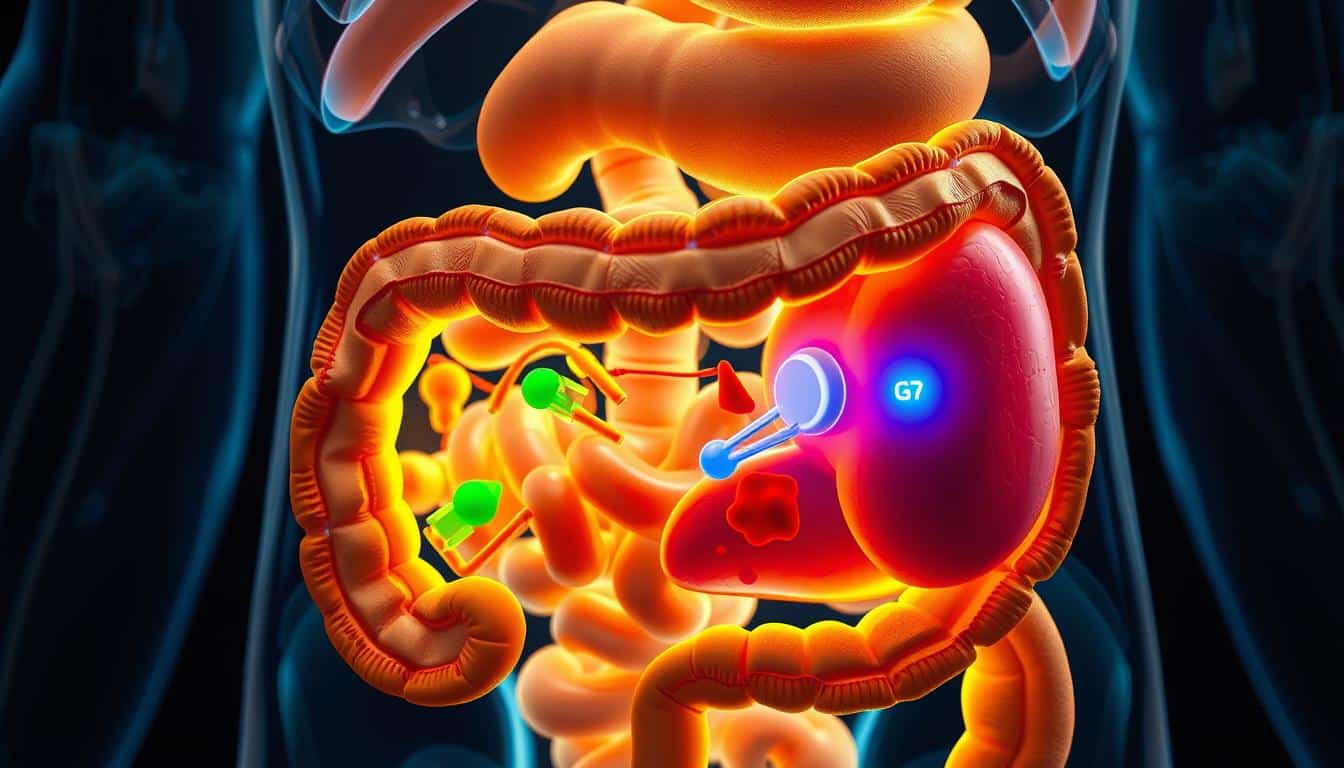Have you ever wondered why some athletes seem to have endless energy during intense matches? The secret might lie in their carbohydrate loading strategy. For soccer players, this approach can be a game-changer, helping them perform at their best when it matters most.
Proper fueling is essential for peak performance. Research shows that increasing glycogen stores can enhance endurance, speed, and overall efficiency on the field. Whether you’re a casual player or a professional, understanding how to optimize your energy reserves can make a significant difference.
Ready to unlock your full potential? Let’s dive into the science-backed strategies that can help you stay energized and dominate the game.
Introduction: Fueling Soccer Performance
What’s the secret behind staying sharp and strong during a full 90-minute game? It all comes down to nutrition. The right fuel can make or break your performance on the field. When you eat well, your body has the resources it needs to keep up with the demands of the game.

Carbohydrates play a key role in providing the energy required for intense play. They’re stored as glycogen in your muscles and liver, acting as a reserve for when you need it most. Studies show that increasing your intake can delay fatigue and help you maintain your skills throughout the match.
Elite athletes rely on precise strategies to boost their performance. Pre-match fueling is a critical part of their routine. By focusing on the right foods at the right times, you can ensure your body is ready to perform at its best.
Whether you’re preparing for a big game or just looking to improve your stamina, understanding the role of nutrition is essential. With the right approach, you can unlock your full potential and dominate on the field.
Understanding Carbohydrates and Glycogen
Ever wondered how your body turns food into fuel for intense activity? The answer lies in carbohydrates and their role in energy production. These nutrients are essential for keeping you moving, especially during high-intensity moments.

What Are Carbohydrates?
Carbohydrates are one of the three main macronutrients, alongside proteins and fats. When you eat foods like bread, rice, or pasta, your body breaks them down into glucose. This glucose is then used as immediate energy or stored for later use.
Common sources of carbohydrates include:
- Whole grains (e.g., oats, quinoa)
- Fruits (e.g., bananas, apples)
- Vegetables (e.g., sweet potatoes, carrots)
- Legumes (e.g., beans, lentils)
Role of Glycogen in Muscle Energy
When your body doesn’t need glucose right away, it converts it into glycogen. This is stored in your muscle tissue and liver, acting as a reserve for when you need quick energy. During exercise, your body taps into these glycogen stores to keep you going.
Research shows that maintaining high glycogen levels can improve endurance and delay fatigue. This is why athletes focus on carbohydrate intake before and during prolonged activity.
| Common Carbohydrate Sources | Glycogen Impact |
|---|---|
| Whole grains | Provides steady energy release |
| Fruits | Quick glucose boost |
| Vegetables | Supports overall energy balance |
| Legumes | Sustains energy over time |
The Importance of Carbohydrate Intake in Soccer
What fuels top athletes to maintain peak performance during high-stakes games? The answer lies in their carbohydrate intake. Proper fueling isn’t just about eating—it’s about timing and consistency. For players, this means ensuring your body has the energy it needs to excel during both training and match days.
Research shows that a well-planned carbohydrate schedule can significantly improve running outputs and reduce fatigue. This is especially critical during intense games where every sprint and tackle counts. By focusing on your intake, you can ensure your energy levels stay high, even in the final minutes of play.
Consistent carbohydrate intake is vital before and during training. It helps replenish glycogen stores, which are essential for sustained effort. Studies suggest that players who prioritize this strategy experience better endurance and quicker recovery times.
Timing also plays a key role. Consuming the right foods at the right times can make a huge difference in your performance. For example, a high-carb meal 3-4 hours before a game can maximize glycogen storage, while quick-digesting snacks during play can help maintain energy levels.
Daily and pre-match intake is just as important. Structured plans often outperform habitual diets, providing the steady energy needed for peak performance. By adopting these practices, you can ensure your body is always ready to perform at its best.
Whether you’re preparing for a big game or just looking to improve your stamina, understanding the role of carbohydrates is essential. With the right approach, you can unlock your full potential and dominate on the field.
Carb Loading for Soccer Players: Strategy and Benefits
Curious about the strategies that keep top performers at their best during critical moments? The strategy behind effective energy management can make all the difference. By increasing your intake a few days before a match, you can boost your performance and stay sharp when it matters most.
Elite athletes rely on precise plans to maximize their energy reserves. Studies show that this approach leads to better sprint outputs and improved metabolic efficiency. Adapting your nutrition to match the intensity of your activity ensures you’re always ready to give your all.
- Increase your intake of whole grains, fruits, and vegetables 3-4 days before a match.
- Time your meals carefully—eat a high-energy meal 3-4 hours before the game.
- Stay hydrated with water or sports drinks to maintain peak performance.
The result of this approach is clear: better endurance, quicker recovery, and sustained energy levels. By planning ahead, you can ensure your body is always ready to perform at its best.
Remember, consistency is key. Whether you’re preparing for a big game or just looking to improve your stamina, these steps can help you unlock your full potential. With the right strategy, you’ll dominate on the field and achieve the result you’re aiming for.
Science Behind Carbohydrate Loading
Ever wondered how science backs up the strategies athletes use to stay energized? Research shows that proper fueling can make a huge difference in performance. Studies, including those using GPS tracking, reveal that specific dietary practices delay fatigue and help maintain energy levels during extended play.
Notable authors and sources have explored these methods in depth. For example, controlled trials often involve a period of restricted intake followed by increased consumption. This approach maximizes glycogen stores, which are critical for endurance.
Research on Endurance Performance
One key term in this field is glycogen, the stored form of energy in muscles. Studies show that increasing glycogen levels through a high-diet plan can improve performance. For instance, research highlights that athletes who follow these protocols experience better sprint outputs and reduced fatigue.
Another important practice is timing. Consuming the right foods at the right intervals ensures steady energy release. This is especially crucial during high-intensity activities, where even a slight dip in energy can impact results.
By understanding the science behind these strategies, you can optimize your diet for peak performance. Whether you’re an elite athlete or a weekend warrior, these insights can help you stay energized and focused when it matters most.
Data Insights from GPS and Match Performance
What does the data say about elite athletes and their performance on the field? Advanced GPS tracking systems have revealed fascinating insights into how proper fueling impacts match outcomes. Studies from the Premier League and PubMed show that players with optimized glycogen stores consistently outperform their peers.
For example, research highlights that players who follow structured fueling plans cover more ground at higher speeds. They also experience less fatigue during critical moments. This is especially evident in the Premier League, where the physical demands of the game are exceptionally high.
Elite Player Studies
Data from elite player studies shows a clear link between carbohydrate strategies and enhanced performance. Here are some key findings:
- Players with higher glycogen stores maintain faster sprint speeds throughout the match.
- GPS data reveals reduced metabolic load in athletes who follow pre-match fueling protocols.
- Studies published in PubMed confirm that structured nutrition plans improve overall running output.
These insights are backed by real-world examples. For instance, top-tier players in the Premier League often rely on precise nutritional strategies to stay at their best. By analyzing their performance data, we can see the tangible benefits of these approaches.
Whether you’re an aspiring athlete or a seasoned pro, these data-driven insights can help you optimize your performance. By focusing on the right strategies, you can unlock your full potential and dominate on the field.
Practical Meal Plans for High-Carb Diets
Planning your meals can be the key to unlocking peak performance on the field. A well-structured diet ensures your body has the energy it needs to excel. Let’s break down how to create a meal plan that works for you.
Daily Carbohydrate Targets
To maximize glycogen stores, aim for 5-8 grams of carbohydrates per kilogram of body weight 1-3 days before an event. This ensures your muscles are fully fueled and ready to perform. Focus on easily digestible, low-fiber options to avoid discomfort.
Here’s a simple guide to help you hit your daily targets:
- Breakfast: A bowl of oatmeal with banana slices and a drizzle of honey.
- Lunch: Grilled chicken with a side of rice and steamed vegetables.
- Snack: A smoothie made with yogurt, berries, and a scoop of protein powder.
- Dinner: Pasta with marinara sauce and a side of garlic bread.
Balancing your carbohydrate sources is crucial for optimal energy availability. Include a mix of whole grains, fruits, and starchy vegetables to keep your energy levels steady throughout the day.
Timing is also important. Eat a high-carb meal 3-4 hours before activity to ensure your glycogen stores are topped up. During prolonged exercise, quick-digesting snacks like sports drinks or energy gels can help maintain your energy load.
By following these practical steps, you’ll be well-prepared to perform at your best. Whether you’re an elite athlete or just starting out, these meal plans can help you stay energized and focused.
Pre-Match Nutritional Preparation
How can you ensure your body is fully prepared to tackle the demands of a high-stakes game? The answer lies in your pre-match nutrition plan. Proper fueling in the days leading up to the event can make all the difference in your performance.
Evidence shows that adjusting your diet 1-3 days before the game maximizes glycogen stores. This ensures your muscles have the energy they need to perform at their best. Focus on foods like whole grains, fruits, and starchy vegetables to fuel up effectively.
- Eat a high-carb meal 3-4 hours before the game. This could include pasta, rice, or potatoes paired with lean protein.
- Snack smart 30-60 minutes before kickoff. Options like bananas, energy gels, or sports drinks can top up your energy levels.
- Stay hydrated. Drink water consistently in the 24-48 hours leading up to the event.
By following these steps, you’ll ensure your body is ready to handle the intensity of the game. Proper preparation not only boosts your energy but also minimizes fatigue, helping you stay sharp until the final whistle.
Implementing Carb Loading on Match Day
Ready to dominate the field with a match-day nutrition plan? A structured approach ensures your energy levels stay high from the first whistle to the last. Here’s how to fuel up effectively and avoid common pitfalls.
Start your day with a high-energy breakfast 3-4 hours before the game. Focus on easily digestible options like oatmeal with fruit or toast with honey. This gives your body time to process the food and convert it into energy.
For a quick boost 30-60 minutes before kickoff, grab a light snack. Bananas, energy gels, or a sports drink work well. These provide a quick glucose hit without weighing you down.
During the match, stay hydrated and maintain energy levels. Sip on a carbohydrate drink or use energy gels to keep your glycogen stores topped up. This is especially important for long or intense games.
As part of a team strategy, coordinate your meals and snacks with your coach or nutritionist. This ensures everyone is on the same page and ready to perform at their best.
| Time Before Match | Meal/Snack |
|---|---|
| 3-4 hours | Oatmeal with banana, toast with honey |
| 30-60 minutes | Banana, energy gel, sports drink |
| During Match | Carbohydrate drink, energy gels |
By following these steps, you’ll ensure your body is fully fueled and ready to handle the demands of the game. Whether you’re an athlete or part of a team, this plan will help you stay energized and focused.
Training Adjustments and Carbohydrate Timing
Want to know how to train smarter, not harder, while keeping your energy levels high? The key lies in balancing your training intensity and timing your fuel intake just right. By making a few simple adjustments, you can avoid fatigue and maximize your exercise performance.
Timing is everything when it comes to fueling your workouts. Eating the right foods before and after training can make a huge difference in how you feel and perform. Here’s how to get it right:
- Pre-Workout Fuel: Aim for a meal rich in easily digestible carbs 2-3 hours before training. This gives your body the energy it needs to power through your session.
- Post-Workout Recovery: After exercise, focus on replenishing your glycogen stores with a mix of carbs and protein. This helps your muscles recover faster and prepares you for your next workout.
Balancing your training intensity is equally important. Pushing too hard without proper fuel can lead to premature fatigue. Instead, adjust your routine to match your energy levels. For example, schedule high-intensity sessions when your glycogen stores are full, and save lighter workouts for days when you’re recovering.
Don’t forget about hydration! Staying hydrated is crucial for maintaining energy and preventing fatigue. Drink water consistently throughout the day, especially before and after training.
By focusing on these adjustments, you’ll not only improve your exercise performance but also enhance your overall recovery. Remember, it’s not just about working hard—it’s about working smart.
Avoiding Common Pitfalls in Carb Loading
Ever feel like your nutrition plan isn’t giving you the results you expected? You’re not alone. Many athletes make mistakes when adjusting their diets, especially when it comes to carb loading. Let’s explore how to avoid these errors and keep your performance on track.
Managing Gut Issues
Sudden changes in your diet can lead to uncomfortable gut issues. To prevent this, gradually increase your carbohydrate intake over a few days. This gives your digestive system time to adjust. Avoid high-fiber foods right before activity, as they can slow digestion and cause discomfort.
Here are some tips to ease the transition:
- Start with small portions of carb-rich foods like rice or pasta.
- Stick to familiar foods—avoid trying new options right before a game.
- Stay hydrated to support digestion and reduce bloating.
Preventing Excess Fat Intake
Combining high-fat and high-carb meals can lead to unwanted calorie surplus. Focus on lean protein and easily digestible carbs to fuel your body effectively. For example, pair grilled chicken with rice instead of fried foods.
Here’s how to balance your meals:
- Choose whole grains, fruits, and vegetables as your primary carb sources.
- Limit fatty foods like cheese or heavy sauces.
- Review your meal plan to ensure it aligns with your energy needs.
By following these steps, you’ll avoid common pitfalls and stay energized for peak performance. Remember, it’s all about planning and consistency!
Carbohydrate Strategies for Delaying Fatigue
Struggling to keep up your energy during the final minutes of a game? Here’s how to stay strong until the end. Fatigue can be a major obstacle in high-intensity sport, but with the right strategies, you can maintain your performance and finish strong.
Studies show that sufficient glycogen levels help athletes better control fatigue and sustain endurance during intense matches. By focusing on your carbohydrate intake, you can ensure your body has the fuel it needs to perform at its best.
Here are some practical tips to delay fatigue and keep your energy levels high:
- Eat a high-carb meal 3-4 hours before the game. This maximizes glycogen stores and provides steady energy.
- Snack smart during breaks. Quick-digesting options like bananas or sports drinks can give you a quick boost.
- Stay hydrated. Dehydration can speed up fatigue, so drink water consistently throughout the match.
Research supports that improved glycogen availability keeps fatigue at bay. By following these strategies, you’ll not only perform better but also recover faster after the game.
| Strategy | Benefit |
|---|---|
| High-carb meal before the game | Maximizes glycogen stores |
| Smart snacking during breaks | Provides quick energy boosts |
| Consistent hydration | Prevents dehydration-related fatigue |
With these tips, you’ll be ready to tackle the demands of any match. Stay fueled, stay focused, and dominate the game!
Enhancing Soccer Skill Performance with Nutrition
Did you know that what you eat can directly impact your ability to execute precise moves on the field? Nutrition isn’t just about fueling your body—it’s about sharpening your skills and keeping your mind focused. For any player, the right diet can make a noticeable difference in both technical and cognitive performance.
Maintaining Technical Skills
Your ability to dribble, pass, and shoot relies on more than just practice. Proper nutrition ensures your muscles have the strength and responsiveness needed for quick, precise movements. Studies show that maintaining glycogen levels helps players perform better during high-intensity exercise.
Here’s how to support your technical skills:
- Focus on balanced meals with carbs, protein, and healthy fats.
- Eat a pre-game meal rich in easily digestible carbs for steady energy.
- Stay hydrated to keep your muscles functioning at their best.
Improving Cognitive Function
Quick decision-making is just as important as physical ability. The right foods can enhance focus, reaction time, and mental clarity during a match. For example, foods rich in omega-3s, like salmon, support brain health and improve cognitive performance.
Try these tips to boost your mental game:
- Include brain-boosting foods like nuts, seeds, and leafy greens in your diet.
- Avoid heavy, greasy meals before a game to prevent sluggishness.
- Stay hydrated to maintain sharp focus throughout the match.
By fueling your body and mind, you’ll not only perform better but also recover faster. Whether you’re a seasoned player or just starting out, these strategies can help you dominate on the field.
Integrating Carb Loading with Overall Diet and Recovery
Ever thought about how your diet can speed up recovery after a tough game? Combining energy-boosting strategies with a balanced plan is key to staying strong and ready for the next challenge. Let’s explore how to merge these approaches for optimal results.
Post-Match Recovery Approaches
After a match, your body needs the right nutrients to recover quickly. Focus on replenishing glycogen stores and repairing muscles. Here’s how to do it effectively:
- Eat a mix of carbs and protein within 30 minutes post-game. This helps kickstart recovery and rebuild energy stores.
- Hydrate well. Water and electrolyte-rich drinks restore lost fluids and support muscle function.
- Plan your meals for the week. Consistent, nutrient-rich eating ensures long-term recovery and performance.
Timing is everything. A balanced meal 2-3 hours after the game keeps your energy levels steady. Include whole grains, lean proteins, and veggies for a well-rounded recovery.
By aligning your diet with your training schedule, you’ll stay energized and ready for the next game. Whether it’s a quick snack or a full meal, every bite counts toward your recovery.
Monitoring Progress and Adjusting Your Plan
How can you ensure your nutrition plan is working for you? Tracking your progress is the key to understanding what’s effective and what needs tweaking. By reviewing your performance and dietary habits, you can make informed adjustments to stay at your best.
Start by keeping a simple journal or using apps to log your meals and workouts. This helps you see patterns and identify areas for improvement. For example, if you notice fatigue during training, it might be time to increase your energy intake.
- Track your energy levels: Note how you feel during and after exercise. This can reveal if your current strategy is working.
- Review performance metrics: Use tools like GPS trackers or heart rate monitors to measure your output and endurance.
- Adjust gradually: Make small changes to your diet and training routine to avoid overwhelming your body.
Regular monitoring allows you to see the impact of your efforts. For instance, studies show that athletes with optimized glycogen levels perform better and recover faster. By staying consistent and adaptable, you can continuously improve your results.
Remember, progress takes time. Celebrate small wins and stay committed to your goals. With the right approach, you’ll stay energized and ready to dominate every game.
Conclusion
Taking your game to the next level starts with the right fuel. A structured approach to nutrition can significantly boost your performance, as proven by research and data from top league soccer players. By focusing on the right strategies, you’ll have the energy to dominate every match.
Remember, consistency is key. Whether you’re preparing for a big game or refining your routine, these tips can help you stay sharp and strong. Experiment with meal timing, hydration, and recovery to find what works best for you.
Confidence comes from preparation. Apply these practices with dedication, and you’ll see the results on the field. Ready to elevate your game? Start today and make every play count.


